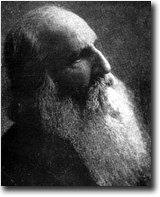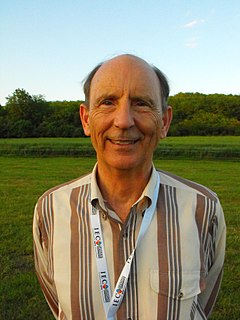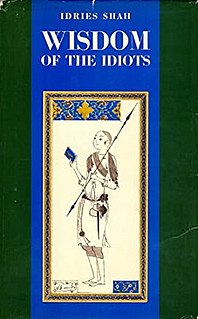Brainwashing is the concept that the human mind can be altered or controlled by certain psychological techniques. Brainwashing is said to reduce its subjects' ability to think critically or independently, to allow the introduction of new, unwanted thoughts and ideas into their minds, as well as to change their attitudes, values and beliefs.

The Origin of Consciousness in the Breakdown of the Bicameral Mind is a 1976 book by the Princeton psychologist, psychohistorian and consciousness theorist Julian Jaynes (1920-1997). The book addresses the problematic nature of consciousness – “the ability to introspect” – which in Jaynes’ view must be distinguished from sensory awareness and other processes of cognition. Jaynes presents his proposed solution: that consciousness is a “learned behavior” based more on language and culture than on biology; this solution, in turn, points to the origin of consciousness in ancient human history rather than in metaphysical or evolutionary processes; furthermore, archaeological and historical evidence indicates that prior to the “learning” of consciousness, human mentality was what Jaynes called "the bicameral mind" – a mentality based on verbal hallucination.

Margaret Thaler Singer was an American clinical psychologist and researcher with her colleague Lyman Wynne on family communication. She was a prominent figure in the study of undue influence in social and religious contexts, and a proponent of the brainwashing theory of new religious movements. She was prohibited from testifying as an expert in American courts as a result of the Scientology Fishman case.
The term large-group awareness training (LGAT) refers to activities - usually offered by groups with links to the human potential movement - which claim to increase self-awareness and to bring about desirable transformations in individuals' personal lives. LGATs are unconventional; they often take place over several days, and may compromise participants' mental wellbeing.

Transpersonal psychology, or spiritual psychology, is a sub-field or school of psychology that integrates the spiritual and transcendent aspects of the human experience with the framework of modern psychology. The transpersonal is defined as "experiences in which the sense of identity or self extends beyond (trans) the individual or personal to encompass wider aspects of humankind, life, psyche or cosmos". It has also been defined as "development beyond conventional, personal or individual levels".

Psychology of religion consists of the application of psychological methods and interpretive frameworks to the diverse contents of religious traditions as well as to both religious and irreligious individuals. The extraordinary range of methods and frameworks can be helpfully summed up regarding the classic distinction between the natural-scientific and human-scientific approaches. The first cluster proceeds by means of objective, quantitative, and preferably experimental procedures for testing hypotheses regarding the causal connections among the objects of one's study. In contrast, the human-scientific approach accesses the human world of experience using qualitative, phenomenological, and interpretive methods, with the goal of discerning meaningful rather than causal connections among the phenomena one seeks to understand.

Steven Alan Hassan is an American author, educator, PhD, and mental health counselor specializing in destructive cults. He has been described by media as "one of the world's foremost experts on mind control, cults and similar destructive organizations," though social scientists are divided on his work. He is a former member of the Unification Church, founded Ex-Moon Inc. in 1979, and in 1999 founded the Freedom of Mind Resource Center. He has written on the subject of mind control and how to help people who have been harmed by the experience.
David Christopher Lane is a professor of philosophy and sociology at Mt. San Antonio College, in Walnut, California. He is notable for his book The Making of a Spiritual Movement: The Untold Story of Paul Twitchell and Eckankar which exposed the origins of Eckankar and demonstrated the plagiarism of its founder, Paul Twitchell. He is also notable for introducing to a wider audience the teachings of Baba Faqir Chand, the Indian exponent of Surat Shabd Yoga from Hoshiapur in the book, The Unknowing Sage: The Life and Work of Baba Faqir Chand. Lane founded the journal, Understanding Cults and Spiritual Movements in the 1980s which featured critical studies of John-Roger Hinkins and Movement of Spiritual Inner Awareness, Adi Da, and Sathya Sai Baba.

Richard Maurice Bucke, often called Maurice Bucke, was a prominent Canadian psychiatrist in the late 19th century.
In modern English, a cult is a social group that is defined by its unusual religious, spiritual, or philosophical beliefs and rituals, or its common interest in a particular personality, object, or goal. This sense of the term is controversial, having divergent definitions both in popular culture and academia, and has also been an ongoing source of contention among scholars across several fields of study. The word "cult" is usually considered a pejorative.
The academic study of new religious movements is known as new religions studies (NRS). The study draws from the disciplines of anthropology, psychiatry, history, psychology, sociology, religious studies, and theology. Eileen Barker noted that there are five sources of information on new religious movements (NRMs): the information provided by such groups themselves, that provided by ex-members as well as the friends and relatives of members, organizations that collect information on NRMs, the mainstream media, and academics studying such phenomena.

Roger N. Walsh is an Australian professor of Psychiatry, Philosophy and Anthropology at the University of California, Irvine, in the Department of Psychiatry and Human Behavior, within UCI's College of Medicine. Walsh is respected for his views on psychoactive drugs and altered states of consciousness in relation with the religious/spiritual experience, and has been quoted in the media regarding psychology, spirituality, and the medical effects of meditation.
Arthur J. Deikman was a clinical professor of psychiatry at the University of California, San Francisco, and a member of the editorial board of the Journal of Humanistic Psychology and Human Givens. He was also a contributor to The Journal of Nervous and Mental Disease.
Saul V. Levine is a Canadian psychiatrist and author, professor emeritus at various universities for psychiatry at University of California, San Diego, School of Medicine; Stanford University Medical School; and University of Toronto (1970–1993). He was chairman of the Department of Psychiatry at Rady Children’s Hospital, San Diego, from 1993–2011. He was department head of psychiatry at Sunnybrook Medical Center in Toronto, Ontario, Canada.
Peter A. Olsson is an American psychiatrist, psychoanalyst and author. He is author of the book, Malignant Pied Pipers of Our Time: A Psychological Study of Destructive Cult Leaders from Rev. Jim Jones to Osama bin Laden.
Etzel Cardeña is the Thorsen Professor of Psychology at Lund University, Sweden where he is Director of the Centre for Research on Consciousness and Anomalous Psychology (CERCAP). He has served as President of the Society of Psychological Hypnosis, and the Society for Clinical and Experimental Hypnosis. He is the current editor of the Journal of Parapsychology. He has expressed views in favour of open scientific enquiry and the validity of some paranormal phenomena. The Parapsychological Association honored Cardena with the 2013 Charles Honorton Integrative Contributions Award. His publications include the books Altering Consciousness and Varieties of Anomalous Experience.
Mystical psychosis is a term coined by Arthur J. Deikman in the early 1970s to characterize first-person accounts of psychotic experiences that are strikingly similar to reports of mystical experiences. According to Deikman, and authors from a number of disciplines, psychotic experience need not be considered pathological, especially if consideration is given to the values and beliefs of the individual concerned. Deikman thought the mystical experience was brought about through a "deautomatization" or undoing of habitual psychological structures that organize, limit, select, and interpret perceptual stimuli. There may be several causes of deautomatization—exposure to severe stress, substance abuse or withdrawal, and mood disorders.

Wisdom of the Idiots is a book of Sufi teaching stories by the writer Idries Shah first published by the Octagon Press in 1969. A paperback edition was published in 1991. ISF Publishing, sponsored by The Idries Shah Foundation, published a paperback edition on 2015, followed by the ebook version and audiobook.
Spiritual crisis is a form of identity crisis where an individual experiences drastic changes to their meaning system typically because of a spontaneous spiritual experience. A spiritual crisis may cause significant disruption in psychological, social, and occupational functioning. Among the spiritual experiences thought to lead to episodes of spiritual crisis or spiritual emergency are psychiatric complications related to existential crisis, mystical experience, near-death experiences, Kundalini syndrome, paranormal experiences, religious ecstasy, or other spiritual practices.
Michael D. Robbins is an American author, psychoanalyst, and former professor of Psychiatry at Harvard Medical School and the University of California, San Francisco. His psychoanalytic research has focused on how the mind works in western and non-western cultures, particularly with regard to schizophrenia and other psychoses, language, creativity, conscious and unconscious mental processes.







